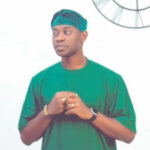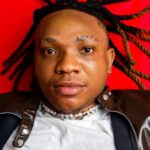
A professor of Political Economy and Development, Habu Mohammed, is the Director of Aminu Kano Centre for Democratic Studies at the Bayero University, Kano State. He is an awardee of the prestigious US-based Institute of International Education (IIE) and a former Fullbright visiting scholar at Northwestern University, Illinois, USA. He speaks with IMOLEAYO OYEDEYI on the 25-year journey of the political party formation in the current political dispensation, explaining why political parties have dashed the hopes and expectations Nigerians had when the journey to democratic governance was restarted in 1999.
TWENTY five years ago, the Peoples Democratic Party (PDP) was formed in Nigeria. Looking at the years that the party has been in the country, how will you describe its performance and journey?
Well, not only the PDP but for any other party in Nigeria, whether the one that has been controlling power since 2015 or the younger political parties that we have, when looking at them individually or collectively, you will see that they lack deeper institutional capacity. Of course, the PDP in particular had been in power for about 16 years in this country, but the party has not actually showcased to Nigerians what it requires to change the narratives of political development in the country.
If you are talking about corruption, the political party members as well as the PDP governors and indeed the presidents that the party produced over the years with a possible exception of the late [Umaru] Yar’Adua, most of them ended up widening the scope of corruption in Nigeria. The party itself organisationally was in disarray immediately after the 2015 general election when it lost to the All Progressives Congress (APC). And since then up till today, the party has been moving epileptically. This is to tell you that it is not the longevity of any political party in government that matters most, but the deeper institutional capacity that I said earlier. It is what is required for a political party to be labelled mature and sophisticated in any political process.
By and large, I can say without any iota of doubt that of course the PDP succeeded in producing many famous politicians that we have today because you cannot talk of the APC without the PDP. You can also not talk of the Alliance for Democracy without mentioning the PDP. This is because many of the initial members of the new parties all migrated and [defected] from the PDP. You talk of someone like Professor Jerry Gana and the rest of them, who were the pioneer members of the G30 that formed the PDP. Gana is now in a small political party. But this does not change the fact that he came from the PDP and changed his political attitude when he was in the party.
But beyond the PDP, if you look at the other political parties critically, you will see that most of them do not have genuine political principles required of a standard political party to function well, generate support, and attract membership from far and near. Essentially, a political party is supposed to have well-articulated principles. It is expected to function efficiently from the vantage point of aggregating the interests of the people and at the same time articulating those interests.
Also, a political party is meant to educate and ensure that there is a good level of communication between it and society. It is supposed to serve as a platform that will create leadership recruitment, which I can say without any contradiction that the PDP did well. The party recruited many leaders that we know today. But in terms of other functions that I have mentioned, the PDP and all other political parties that we have nowadays are lagging behind. In fact, most of their functions have been taken over by the Civil Society Organizations (CSOs).
But in 1999, the expectation was that the political parties would serve as credible platforms that would give Nigerians all that they needed in terms of articulating their voices, changing the paradigms of underdevelopment in the country, changing the narratives of corruption and lawlessness in the country and also in terms of changing the perception of Nigerians on the issue of who to elect.
But unfortunately, these expectations were dashed. Whether you are talking of the PDP or the current party that has been in power for more than eight years, it is the same thing in the sense that the political parties are in a shambles for no other reason than they do not have good organisational as well as institutional capacity to stand on their own. That is why, for example, it is only in Nigeria that somebody who claims not to be part of a political party will be serving in the government that the same political party has formed without any membership registration or identity. And it is only in Nigeria that a political party can quickly come out and tell you that we will control power for more than 100 years because he who owns power will do so autocratically and absolutely to the point whereby many other forces are relegated to the background.
Central to this issue is the question of sustainability in government rather than the sustainability of democracy. In other words, the political parties want to sustain themselves in government, but they lack the inherent qualities of sustaining their leverage, legacies, and institutional capabilities to greater heights. This explains why the PDP and other opposition political parties are indeed weak and becoming weaker by the day, because it is only when they have power that their modicum of authority will come to the limelight. And without power, the political parties become epileptic in their operations.
For these political parties, party politics means the end game and that is what we have been experiencing as far as the PDP and others are concerned. They believe it is the end game and that is why there are squabbles everywhere, so much that there is gross indiscipline among them, while party bureaucracy is wretched. For each of the parties, there is a strong gap between the leadership and members of the party at the lower and grassroots levels. So, the political parties are in disarray as I said earlier.
For them, especially the PDP to resuscitate itself and again be relevant in Nigerian political space, there must be a change in internal organisation. Party primaries should be based on internal party democracy. The leadership of the party must be obeyed, respected and at the same time serve as the vanguard or a rallying point for other party members to follow. If there is indiscipline and people are so much into puckish internal squabbles because they are rich, then, there will be a problem, because he who is rich will feel he is the one that can and should control the party. That is what we have been seeing, such that the rich by virtue of their riches and wealth determine and recommend those that will contest for election on the platform of the party and even get the party’s ticket at the end of the day. So the parties are not institutionally based and richly entrenched in ideological values.
And that is why for PDP, its membership has become totally destabilised. So we can say the party has found itself in what I call a money-bag. Only the current Minister of the Federal Capital Territory and former Rivers State governor, Nyesome Wike, financed the party, controlled the party, and determined who gets what position. In fact, his failure to even agree with another faction in the party that he created led to the party’s disintegration and failure to win the 2023 presidential election.
I can boldly say that had it been that the PDP was well organised and did its homework very well; the APC wouldn’t have even retained the power. However the total lack of unity and consensus among the factions within the party and other internal squabbles associated with the party long before the February election consumed and frustrated its chances at the presidential poll. Though the opposition party appears national in scope, it has been fractionalised and dismembered. The dismemberment alone means that it can no longer walk on two legs, but can only crawl. The implication of this is that the crawling will give the party in government the space to move faster and cover the available ground.
But looking at other political parties, like Labour Party, New Nigerian Peoples Party (NNPP), the APC, and others, what do you think have been the challenges stuttering their growth?
The challenges are basically the same. It is only that some political parties are in a stronger position to douse most of the challenges they face. But in looking at the critical issues there, one can pick the LP for instance. Initially, it was a revolutionary party that came within a short time and became popular. But unfortunately, because of the one-sided nature of its leadership and supporters, which was reflected in the campaigns that they conducted that were premised on ethnic, and religious sentiments and considerations, the party became weak along the line.
For the NNPP, it was a party, whose emergence was jubilated by many people, thinking that it would form an alliance with the LP. Little did they know that the two parties are actually two different hemispheres in the sense that before the election, all their leaders were actually anxious to grab power, by hook or by crook. But the aspirations of each of them were dashed during the general election. So what I am saying basically is that even the newly emerging political parties, hitherto look fresh and many people were actually confident that they would do the best they could to dismantle the status quo, but unfortunately, because of their internal fraction and ill-conceived agenda and style with which they carried out their campaigns, they couldn’t achieve the ultimate goal. And part of this is also because they traded with sectionalists’ agenda.
If you remember vividly, the NNPP won in Kano State. However, the party’s votes did not even form one per cent of the total votes obtained throughout the country. This means that the party was one-sided, sectional, and latitudinal, which means it could not walk the way it was supposed to be walking by generating the sensibilities, popularity, and support of the people across various parts of the country: the North, the South, and the East.
READ ALSO FROM NIGERIAN TRIBUNE
WATCH TOP VIDEOS FROM NIGERIAN TRIBUNE TV
- Let’s Talk About SELF-AWARENESS
- Is Your Confidence Mistaken for Pride? Let’s talk about it
- Is Etiquette About Perfection…Or Just Not Being Rude?
- Top Psychologist Reveal 3 Signs You’re Struggling With Imposter Syndrome
- Do You Pick Up Work-Related Calls at Midnight or Never? Let’s Talk About Boundaries






